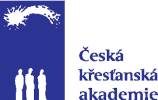Supporting Moral Development in Medical Students through an Elective Course Focused on Moral Self-reflection
Keywords:
moral development, moral regression, medical education, supporting moral development, personality of the physician, moral self-reflection, elective courseAbstract
Due to the high level of stress experienced during study, the moral development of medical students may be being stunted, and in some cases even regressing, compared to other students of the same age. At the Third Faculty of Medicine, Charles University, we have responded by creating an elective course that offers a safe space for moral self-reflection. The results show that this course can effectively support the moral development in students.
Downloads
References
Blue, Amy V., Crandall Sonia, Nowacek George, Luecht Richard, Chauvin Sheila, and Swick Herbert. 2009. “Assessment of matriculating medical students’ knowledge and attitudes towards professionalism.” Med Teach 31, no. 10 (October): 928–32. https://doi.org/10.3109/01421590802574565.
Branch Jr., William T. 2000. “Supporting the moral development of medical students.” J Gen Intern Med 15 (7): 503–8. https://doi.org/10.1046/j.1525-1497.2000.06298.x.
Guthrie, Else A., Black, D, Shaw, C. M., Hamilton J., Creed F. H., and Tomenson B. 1995 “Embarking upon a medical career: psychological morbidity in first year medical students. Med Educ 29, no. 5 (September): 337–41. https://doi.org/10.1111/j.1365-2923.1995.tb00022.x.
Hafferty, Frederic W. 2002. “What medical students know about professionalism.” Mt Sinat J Med 69, no. 6 (November): 385–97. https://pubmed.ncbi.nlm.nih.gov/12429957/.
Hayes, Kevin, Feather, A., Hall, A., Sedgwick, P., Wannan, G., Wessier-Smith, A., Green, T., and McCrorie P. 2004. “Anxiety in medical students: is preparation for full-time clinical attachments more dependent upon differences in maturity or on educational programmes for undergraduate and graduate entry students?” Med Educ. 38, no. 11 (November): 1154–63. https://doi.org/10.1111/j.1365-2929.2004.01980.x.
Hojat, Mohammadreza, Mangione, Salvatore, Nasca Thomas J., Rattner, Susan, Erdmann, James B., Gonnella Joseph S., and Magee, Mike. 2004. An empirical study of decline in empathy in medical school. Med Educ 38, no. 9 (September): 934–41. https://doi.org/10.1111/j.1365-2929.2004.01911.x.
Hren, Darko, Marušić, Matko, and Marušić, Ana. 2011. Regression of Moral Reasoning during Medical Education: Combined Design Study to Evaluate the Effect of Clinical Study Years. PLoS One 6, no. 3 (March 30): e17406. https://doi.org/10.1371/journal.pone.0017406.
Kohlberg, Lawrence, Levine, Charles, and Hewer Alexandra. 1983. Moral stages: a current formulation and a response to critics. Basel: Karger.
Maoyi, Xu. 2014. “Medical Students' Motivations for Studying Medicine: Changes and Relationship with Altruistic Attitudes, Expectations, and Experiences of Learning at University.” PhD Diss., University of Adelaide. https://digital.library.adelaide.edu.au/dspace/handle/2440/91873.
McDonald, Jenny, Graves, Jane, Abrahams, Neeshaan, Thorneycroft, Ryan, and Hegazi, Iman. 2021. “Moral judgement development during medical student clinical training.” BMC Med Educ 21, 140: 1–9. https://doi.org/10.1186/s12909-021-02572-4.
Moss, F., and McManus, I. C. 1992. The anxieties of new clinical students. Med Educ. 26, no. 1 (January): 17–20. https://doi.org/10.1111/j.1365-2923.1992.tb00116.x.
Radcliffe, Christina, and Lester, Helen. 2003. Perceived stress during undergraduate medical training: a qualitative study. Med Educ 37, no. 1 (January): 32–8. https://doi.org/10.1046/j.1365-2923.2003.01405.x.
Rezler, Agnes G. 1974. “Attitude changes during medical school: a review of the literature.” Med Educ 49, no. 11 (November): 1023–30. https://doi.org/10.1097/00001888-197411000-00001.
Wolf, Thomas M., Balson, P. M., Faucett J. M., and Randall H. M. 1989. “A retrospective study of attitude change during medical education.” Med Educ 23, no. 1 (January): 19–23. https://doi.org/10.1111/j.1365-2923.1989.tb00807.x.
Downloads
Published
How to Cite
License
Copyright (c) 2022 Tereza Pinkasová

This work is licensed under a Creative Commons Attribution-NonCommercial-ShareAlike 4.0 International License.



